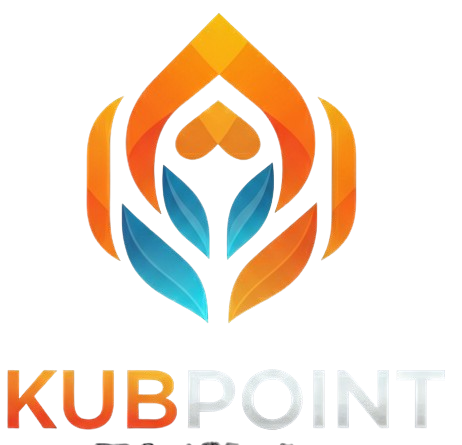GitHub’s new MCP Registry promises to solve a major headache for developers building AI-powered workflows. Instead of hunting through scattered repositories and community threads for Model Context Protocol (MCP) servers, developers now have a single place to discover and deploy the tools they need.
The registry launches with backing from major partners including Figma, Postman, HashiCorp and Dynatrace. Each offers curated MCP servers that enable AI agents to interact directly with their platforms from development environments.
What Makes MCP Important
MCP acts as a bridge between AI agents and external systems. Think of it as a standardized way for your coding assistant to fetch fresh data, interact with APIs, and integrate with existing workflows. Without MCP, each AI tool would need custom integrations for every service it wants to connect with.
The protocol enhances the utility of AI agents by providing them with access to real-time information and the capability to take actions beyond generating text. An agent can pull issues from GitHub, update Figma designs, or query Postman collections without switching contexts.
Registry Solves Discovery Problems
Before the GitHub MCP Registry, finding MCP servers meant searching through individual repositories, community forums, and various unofficial registries. This scattered approach created several problems:
- Developers wasted time hunting for tools
- Server creators had to publish across multiple platforms
- Security risks increased due to fragmented distribution
- Quality varied widely without central curation
The new registry addresses these issues by providing a single, trusted source of information. Since GitHub already hosts most MCP server repositories, the registry leverages existing infrastructure while adding discoverability features.
“GitHub’s launch of the MCP Registry marks an important next step for the emerging Model Context Protocol ecosystem. Just as the open MCP standard is designed to make it easier for AI agents to connect with external systems and resources, the GitHub MCP Registry (in preview) offers a single, curated catalog where developers can discover MCP servers,” said Mitch Ashley, VP and practice lead of software lifecycle engineering at The Futurum Group. “It’s forward-looking in that agents and clients will be able to query the catalog, filter servers by capabilities or stated policies, and connect without manually handling server manifests. While still early and subject to change, this lowers the barrier for building powerful, context-aware AI applications.”
Launch Partners Bring Real Value
The initial partner lineup demonstrates practical applications across different development scenarios:
Figma contributes a Dev Mode MCP server that brings design context into coding environments. Developers can generate code that aligns with design systems without constantly switching between tools.
Postman offers platform access through MCP, bridging the gap between API documentation, testing, and code implementation. This integration helps teams maintain consistency between API specs and actual implementations.
HashiCorp provides Terraform capabilities through MCP, letting developers manage infrastructure directly from their coding assistants. Teams can provision resources and update configurations without leaving their development environment.
Dynatrace adds observability and performance insights through its MCP server. Developers get security and performance data in their IDE, reducing context switching when addressing issues.
Remote GitHub MCP Server Goes GA
Alongside the registry launch, GitHub’s Remote GitHub MCP Server reached general availability with significant improvements:
Enhanced Authentication: OAuth 2.1 with PKCE support replaces personal access tokens across major IDEs, including VS Code, Visual Studio, JetBrains, Eclipse, and Xcode. This provides better security through automatic token refresh and short-lived credentials.
Premium Tools: The Copilot Coding Agent now works within MCP workflows, handling autonomous development tasks like bug fixes and feature implementations. It creates branches, writes code, runs tests, and opens pull requests independently.
Expanded Capabilities: New tools cover more GitHub workflows, including security advisories, sub-issue management, pull request improvements, and enhanced gists support.
Building an Open Ecosystem
GitHub isn’t building this registry in isolation. The company works with Anthropic and the MCP Steering Committee to create an open-source registry that integrates with GitHub’s platform.
The plan includes a self-publishing flow where developers can submit MCP servers to an OSS MCP Community Registry. These servers automatically appear in the GitHub MCP Registry, creating unified discovery without duplicating efforts across multiple platforms.
This approach aims to:
- Reduce registry fragmentation
- Provide transparent metadata and verification
- Enable community contributions at scale
- Maintain quality standards across the ecosystem
Why This Matters Now
AI-assisted development is evolving beyond simple code completion to encompass full workflow integration. As agents become more capable, they need reliable ways to access external systems and real-time data.
The registry addresses a critical infrastructure gap. Without standardized discovery and distribution, the MCP ecosystem risked remaining fragmented and difficult to navigate. A central registry with quality curation helps developers find trustworthy tools faster.
The timing aligns with broader industry trends toward agentic workflows, where AI assistants handle complex, multistep tasks autonomously. These workflows require robust integrations with development tools and platforms.
Getting Started
Developers can browse the GitHub MCP Registry today to discover available servers. The registry includes one-click installation for VS Code and displays servers sorted by GitHub stars and community activity.
For teams already using GitHub Copilot or other MCP-compatible hosts, the registry provides immediate access to partner integrations. Organizations can also contribute their own MCP servers to the community registry, helping expand the ecosystem.
The registry represents GitHub’s continued investment in AI-powered development tools, building on the foundation laid by Copilot and extending it through open protocols and community collaboration.

